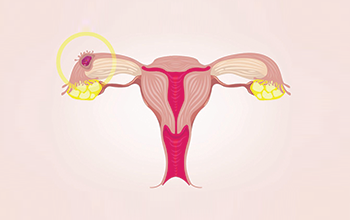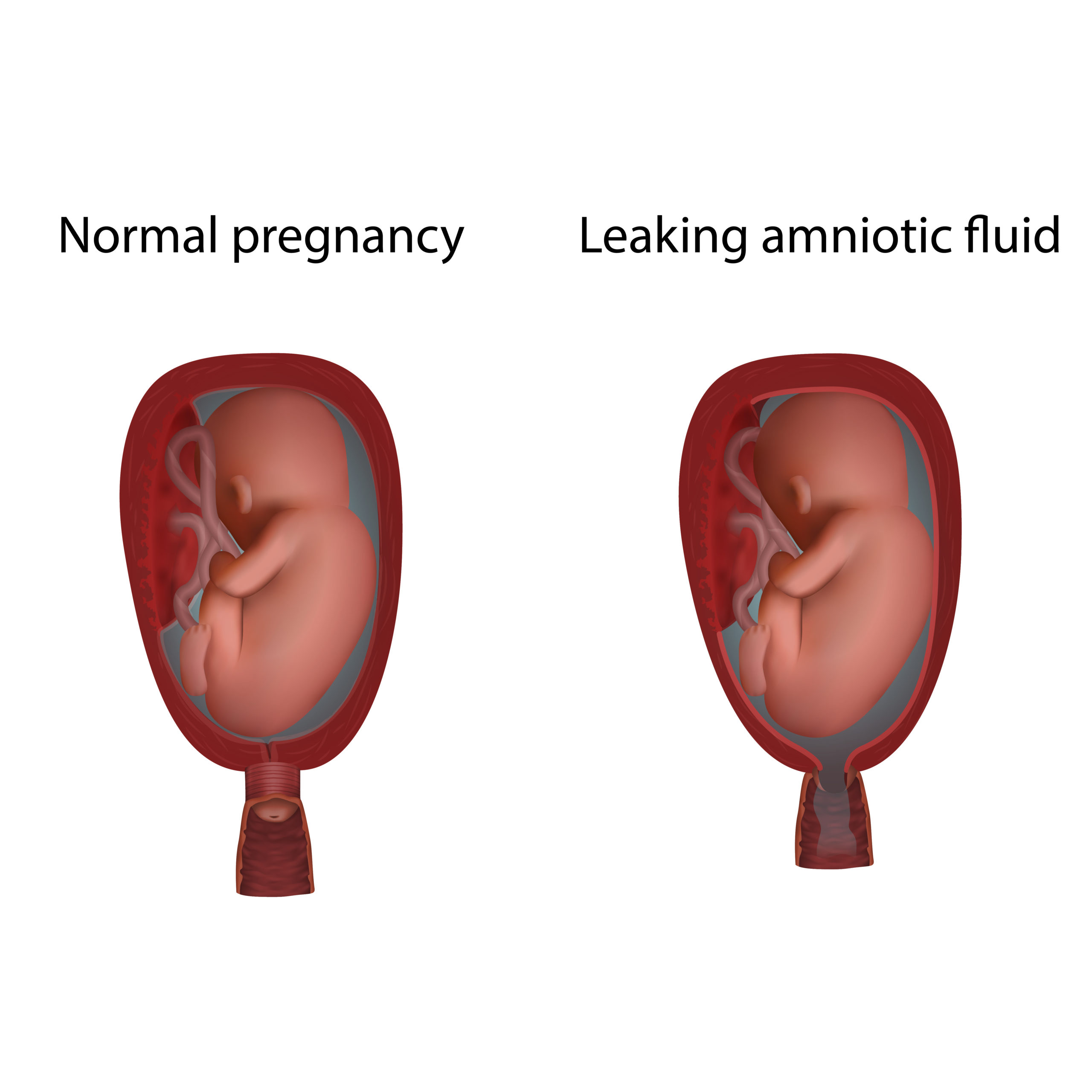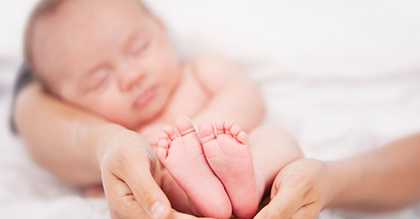Breastfeeding is instinctive for both mother and baby. A newborn when left undisturbed on a mother??s belly is able to crawl up to the breast, find the nipple and self-attach. However, despite being instinctive and natural, breastfeeding is not always easy.
New mothers have ample support at the hospital but they can feel overwhelmed with the new baby at home especially in the first few weeks. If breastfeeding is going well, it is easier for moms to start enjoying their newborn while they recover. However, breastfeeding can be challenging in the early days. Some roadblocks with breastfeeding include nipple soreness, painful latch, low milk supply or oversupply, poor weight gain in babies and lack of sleep.
Understanding newborn behavior and adjusting your expectations in the first few weeks can ease your transition to parenthood. Here are some pointers to get breastfeeding off to a pain-free and stress-free start.
1. Attend a breastfeeding class before your baby arrives. Understanding frequency and duration of breastfeeding, newborn sleep and wake cycles, and recognizing hunger cues will help you get into a rhythm sooner. Being able to practice nursing positions and latching techniques on model babies in class should help you gain confidence and troubleshoot with ease in the early days.
2. Feed within the first hour of birth. Babies are generally alert and demonstrate instinctive feeding behaviors in the first hour of birth. When a baby is allowed to crawl up to the breast and self-attach the latch is deeper and transfer of Colostrum is better. Studies have shown that early initiation of breastfeeding and skin-skin contact with baby improves outcomes by bringing milk in sooner, stimulating baby??s feeding instincts and is associated with increased likelihood of exclusive breastfeeding for first 4 months[1, 2].
3. Stay close to baby: Babies like to be held and you cannot spoil a newborn with too many cuddles. Dr. Nils Bergman, one of the founders of Kangaroo Mother Care, describes the mother??s breast as the newborn’s natural habitat. As with any mammal, separation from its natural habitat triggers a protest-despair response. The protest in the newborn involves crying to be reunited with mother and the despair response is the withdrawal, fluctuation in heart rate and a rise in body temperature that follows. Rooming in with the baby and holding baby skin-to-skin contact will help baby feel secure where she can hear your heartbeat and stay warm. This also means your baby will cry less and will be easier to handle.
4. Nurse with a SOFT touch
Bonding with a SOFT touch helps release oxytocin and facilitates milk production. Oxytocin is called the ??love hormone?? as it is responsible for the falling in love experience the mother and baby have as they bond.
SOFT touch is:
Skin-to-Skin Contact
Open Eye Contact
Fingertips Touching
Time Together
Oxytocin levels can drop with bright lights and if mom is conscious and surrounded by too many people. Uninterrupted quiet time with your baby is a must. Ask visitors to delay their first visit until you have established a rhythm with your baby.
5. Pay attention to hunger cues. Your baby may pucker and smack her lips turn her face from side to side, bring her hands to her mouth and even dive into your breast in search of the nipple. It is important to feed your baby at these first signs of hunger. Crying is a late sign and it is generally harder to get a crying baby to latch.
6. Feed on Demand in the first 3 months. Feed your baby at the first sign of hunger and as often as they want to. In the first 2 weeks, however, babies are very sleepy and may need to be woken up to feed every 2.5 hours. Frequent feeding in the first 2 weeks will help your milk come in sooner, regulate the milk production, and help baby maintain blood sugar levels steady. Once your baby has regained its birth weight (babies loose weight in the first week until the milk comes in) you can relax on this rule and start feeding on cue. Allow you baby to empty one side completely till breast feels soft to ensure baby get the rich fatty hind milk then burp and offer the other side.
Sleep training and schedule feeding if initiated sooner than 4 months of age can compromise milk supply. Breastfeeding is a demand and supply process and in the early days baby??s have frequent growth spurts. During a growth spurt, the baby??s appetite increases and it can be challenging to keep up with this increased need. You may feel discouraged and be tempted to supplement with formula, but you can be assured that your milk supply will catch up if you demand feed. A lactation consultant can help you quantify milk supply objectively if you suspect pathologically low milk production, which can happen in case of hormonal imbalances.
7. Get comfortable; Babies feed often in the first few months and poor positioning could cause your back and shoulders to hurt. Nurse baby-sitting in a comfortable chair using a feeding pillow that reaches up to the breast. Place your feet up on a low stool to bring baby closer. When the baby is latched on your shoulders should be comfortably relaxed and lower back supported.
Alternatively, you can use a laid back position to breastfeed in the early days where you are reclined to about 45 degrees and the baby is supported on your chest. This position also helps prevent traction on the nipple by the weight of the baby hanging under the breast. If you are unable to find a comfortable nursing position seek out a lactation specialist to help you as soon as possible.
8. Babies Breastfeed not Nipple fed. The latch is everything when it comes to breastfeeding. If your baby gets a large mouthful of the breast the nipples reach a comfortable spot in the babies mouth, so milk transfer is better and there is no pain. Conversely, if your baby is latched only on to the nipple it can get pinched between the baby??s tongue and the hard roof of the mouth leading to painful cracked nipples and poor milk transfer. Breastfeeding should not hurt and if pain persists throughout the feed consult a lactation specialist. Sometimes a consult might reveal a structural issue such as a high palate, tight frenulum or inverted nipples that require special intervention.
Signs that baby is latched well include:
1. Lips are flanged out
2. More of the areola is visible on the top and less below
3. Chin is in contact with the breast
4. Nose is free
5. No clicking sounds or dimpling of cheeks
Usually, a well-attached baby suckles a few times and then pauses to swallow. If your baby falls asleep at the breast a few breast compressions can get the milk flowing and keeps baby interested through the feed. This is preferred to the usual advice of tickling the baby??s ears and toes.
9. Stay away from bottles and pacifiers. If you need to supplement baby in the early days with formula or expressed milk it is best to use a syringe or a feeding cup. Introducing a bottle in the first 12 weeks can cause the baby to develop a preference for the faster flow the bottle offers. This might result in a nursing strike where the baby refuses to latch on directly. Coaxing the baby back to the breast will take patience and perseverance.
10. Enlist dad. Dads can feel left out during this phase that revolves around the mother-baby dyad. Dad??s positive and supportive attitude towards breastfeeding can really boost mother??s confidence and encourage her to keep going on difficult days. Dads can take turns with nappy changes, help with burping and swaddling, also do skin-to-skin contact and help moms relax. Dads can ensure moms get adequate rest, eat well at regular intervals and keep stress levels low.
Breastfeeding isn??t meant to be difficult or painful but it is definitely no mean feat! It is, however, an extremely rewarding experience when all goes well.
By Dr. Sonali Santhanam
Source:
1. Imdad, A., M.Y. Yakoob, and Z.A. Bhutto, Effect of breastfeeding promotion interventions on breastfeeding rates, with the special focus on developing countries. BMC Public Health, 2011. 11 Suppl 3: p. S24.
2. Sharma, A., Efficacy of early skin-to-skin contact on the rate of exclusive breastfeeding in term neonates: a randomized controlled trial. Afr Health Sci, 2016. 16(3): p. 790-797.


 Toll Free Number
Toll Free Number
















